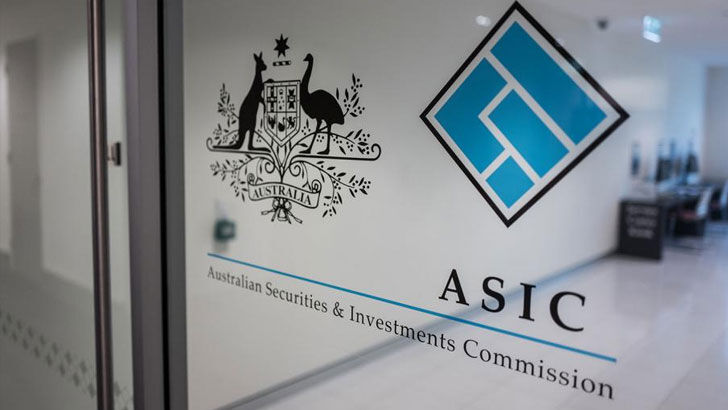How to make financial advice more affordable
By Vita Palestrant
We live in a complex financial world. Whether you are buying a home, building wealth, choosing life cover, saving for retirement or funding aged care, there are difficult decisions to be made, each of which could benefit from specialist advice.
But that comes at a cost, one that most Australians find unaffordable.
Numerous government reviews of the financial services system have been made over the past three decades. The latest, the Quality of Advice Review, announced in March, aims to assess how the regulatory framework could deliver better outcomes for consumers.
It will investigate whether there are opportunities to streamline and simplify regulatory compliance to reduce costs and duplication; to improve the clarity of documents; and whether parts of the regulatory framework have created unintended consequences.
Actuary Michael Rice says the current financial advice regime is in crisis.
"While there is now much improved consumer protection, the heavily bureaucratic legislation pertaining to advice, together with the ultra-cautious approach of the regulators, is a severe hindrance to the industry delivering sound financial advice at a fair price for most Australians," he says in his submission.
"Ironically, legislation and regulations aimed at protecting consumers have contributed to a situation where many Australians do not receive financial advice. Many of these people have poor finances and suffer because of the absence of any professional guidance."
While the original intention of the Financial Services Reform (FSR) legislation was to allow single-issue advice, "this has been thwarted by the regulator applying the same heavy compliance requirements to this type of advice as for the far more complex comprehensive advice plan," he says.
Regulatory burden
The legislation requires an adviser to know, and to consider, their client's overall financial needs even if only dealing with a small part of those interests.
"This was not the intention of the original FSR legislation, and it has restricted people from delivering simple forms of financial advice electronically at low costs (and with low risks) to consumers," says Rice. "The desire not to fall foul of ASIC usually takes preference over delivering a sound, value-for-money outcome for consumers."
As a result, few ordinary Australians can afford to purchase the financial advice they need.
"This is a major problem for the significant number of Australians moving into retirement. They need advice if they are to optimise their retirement incomes - which will be highly valuable for them as well as being to the benefit of the Australian economy."
Rice has had a long, distinguished career as an actuary. He was the founder and CEO of the research firm Rice Warner. Last year it was bought by Deloitte.
A report prepared by the firm in 2020 for the Financial Services Council on the future of financial advice reforms included research by KPMG showing that a financial plan cost more than $5000 to produce. Administrative changes could cut that by about $2000.
However, in his submission Rice says it does not bring the cost of a financial plan down to levels most consumers would find palatable, and more fundamental change is needed.
"Several surveys have shown that most consumers will not pay more than a few hundred dollars for each piece of advice. Conversely, wealthier Australians have substantial assets to protect or have high income that will generate future savings. In these cases, they value financial advice and will pay a sizable fee for it."
To broaden the uptake of financial advice in the community, he argues that consumers should be able to access simple advice for one-off amounts under $500 and some forms of comprehensive advice for less than $1500.
He proposes a new risk-based model:
• Simple (low risk);
• Comprehensive (medium risk); and
• Complex (high risk).
Rice says there would still be a need for specific controls for advice in specialist areas that are either highly complex or high risk, or both. All the above forms would be licensed and monitored by ASIC.

Risk-based approach
The current policy requiring advisers to hold a degree in financial planning is an attempt to raise industry standards, says Rice. "However, this step is not necessary to develop standards for many forms of advice. It will also lead to a shortage of advisers in due course and adds significant cost."
The flaws with the system are:
- New entrant advisers must obtain a degree in financial planning. This requirement limits the pool of future advisers as many people trained in associated professions, such as accounting or actuarial science, will not want to study for a further three years, particularly as the financial planning degree is less valuable than their existing qualification.
- A specialist degree is not needed to deliver many forms of advice. Many advisers specialise in areas where there are already existing educational facilities. For example, a stockbroker needs to know about retail investments; they do not need to know anything about life insurance.
- A degree in financial planning is not necessary to deliver many forms of simple advice. An appropriate qualification is needed, but this need not be a degree.
"If we move to a risk-based structure, the educational requirements can be tailored appropriately," he says.
For example:
- Simple - demonstrate skills in compound interest, basic accounting functions and statistics. The qualifications of accountants and actuaries are automatically accepted.
- Comprehensive - tertiary qualification that includes some of these topics - accounting, actuarial science, economics, finance, statistics and behavioural finance.
- Complex - as above, and backed by further education in financial planning (probably a series of diploma courses or a specialist degree in financial planning).
When providing specialist advice, an adviser would need to demonstrate skills in areas such as aged care, life insurance, stockbroking, self-managed super and retirement planning.
This approach would be analogous to medical services, says Rice.
"In financial services we assume every financial adviser is a competent surgeon and every consumer has a complex medical procedure that they need to have. Whereas in the medical profession, you have a whole series of professionals like paramedics, nurses, GPs and surgeons, and you go to the right one, whereas in financial services it is all or nothing."
Currently, all advisers need to do a full analysis of a consumer's financial needs when delivering simple advice. "Provided the advice is likely to make the consumer better off, it should be possible to deliver most simple advice using digital engagement, akin to the current treatment of intra-fund advice," says Rice.
He says financial advisers will continue to deal with wealthier individuals for comprehensive or complex advice, but the model may help them expand their services to more consumers. "They could substitute simple advice for some clients rather than turning them away as happens today."

Industry challenge
Sarah Abood, the CEO of the Financial Planning Association (FPA), says the decline in the number of planners is a serious concern as it coincides with a period of high demand for advice.
"Demographic change is driving increased demand, with the number of Australians over 65, a key trigger for financial advice, due to peak between now and 2027, according to the ABS," says Abood.
She attributes it to older advisers retiring or selling their businesses, plus the withdrawal of the banks from offering planning services, following the financial services royal commission.
"In addition, the legislation requiring planners to pass the FASEA exam by September 30, 2022, and the requirement to have a specific university degree qualification by January 2026, has seen a number of planners decide to leave the profession," says Abood.
"Planners are also dealing with an extremely complex regulatory environment, having to spend more and more time generating lengthy paperwork and filling out forms (often the same forms multiple times in the same year), which is also playing a role in the decisions by financial planners to leave the profession."
Abood says these demands have been the main driver for increasing the cost for financial advice. "The current regulatory settings are adding unnecessary cost and complexity to the financial advice process, at a detriment to those who need advice.
"As well as making advice more expensive than it should be, the regulatory environment is making advice harder for Australians to understand."
The FPA's data suggests the cost of producing a financial plan for new clients rose more than 15% over the 2020 calendar year, on top of the 10% increase during 2019. "It has continued to rise since - according to a study done last year by KPMG, the average cost of advice is now $3660."
The FPA has been calling for a number of reforms to address the complex, overlapping and contradictory regulations, codes and rules that now govern the provision of financial advice.
In its submission to the Quality of Advice Review, it has endorsed five key themes for improving the affordability and accessibility of advice for consumers: recognising the professionalism of financial planners; easier-to-understand documentation; achieving regulatory certainty; improving sustainability of the profession; and facilitating open data and innovation.

Easier for consumers
Xavier O'Halloran, director of Super Consumers, says the current regulatory setting exists for a good reason. "It's there to provide quality and safe advice to those seeking it."
A national survey conducted by Super Consumers of those over 45 found it was only wealthier consumers who relied on financial professionals. "They want trained professionals to help them and tend to have the financial resources to pay for them.
"It requires us to think about what role the design of the financial system and the government can play in making it easier for consumers to navigate," says O' Halloran. "We need to make retirement planning easier. To do this, we need solutions that make sure everyone can get a good outcome from the retirement system regardless of wealth or financial knowledge.
"Our key recommendation is that the government be tasked with connecting up Australia's public retirement services and tools through a single portal to provide quality, impartial guidance, delivered via digital channels with in-person and over-the-phone support as required."
He says the government should merge important information sources like the ATO, Centrelink and MoneySmart and go further to help people understand the types of products and strategies that will help them manage the financial risks they face in retirement.
"This will help people experience the benefits of shopping around and it will help people navigate their different needs as they manage private savings, government support and household financial needs."

How to find an advisor
The Financial Planning Association's Sarah Abood recommends you check that your financial planner has the right qualifications and experience.
"The lead professional designation for financial planners is the CFP (certified financial planner). This designation is recognised globally as the gold standard for advisers. Those with this qualification have completed extensive additional education and training and commit to the highest ethical standards.
"Look for someone you're comfortable with and can work with over the long term. It's best to meet with them first - many financial planners offer a free initial meeting. It's an opportunity to ask questions, and a good planner will listen carefully, answer your questions clearly and explain what kind of advice they can offer you."
There are a variety of ways planners structure their fees. "The cost depends on the complexity of the client's situation, as well as the method the planner uses. The fees might include an upfront fee to identify the client's needs, develop a financial plan and implement their recommendations. Separately, there may be ongoing fees if clients choose a review service."
Also check the government's MoneySmart website (moneysmart.gov.au/financial-advice). It has information and tools that are essential for anyone seeking advice.
It recommends you do the following:
- Make sure your financial adviser has an Australian financial services (AFS) licence or is an authorised representative. Check their qualifications on the financial advisers register.
- Decide what you want from the advice. Do you want help with investing money, budgeting or planning for retirement?
- Read your adviser's financial services guide to learn about their fees and services, and how they deal with complaints.
- Compare the fees charged by different advisers, to make sure you're getting a good deal.
- Be careful about how much access your adviser has to your investment accounts.
- Talk to your adviser if you're unhappy with their advice.
What the definitions mean
According to Rice Warner, the broad legal definitions used by the regulator ASIC and the industry are:
- Education - helping consumers understand topics (for example, what is an equity or what taxes apply to superannuation?)
- Information - providing facts about products or services (such as setting out the fees on a product). Any provision of information should not offer any recommendation or statement of opinion intended to influence the client.
- Financial product advice - this is what is regulated by legislation and regulation, and it's advice that evaluates, compares or makes recommendations about one or more financial products.
- Financial products - these are financial instruments or services defined as such in the legislation. Not all financial instruments are financial products - for example, mortgages are not.
- General advice - this is advice provided without using personal information about the consumer (even if you know something about the consumer). Giving out a product disclosure statement (PDS) without any commentary on a product's merits is "information" but telling someone, say, that the investment is suitable for superannuation is "general advice".
- Personal advice - this is advice provided in relation to specific issues after considering personal information about the consumer.
- Scaled advice - personal advice about one or more topics (but is not expected to be comprehensive, only specific to a topic).
- Intra-fund advice - scaled advice about one or more topics, which includes personal information about the consumer and their interest in a single super fund in which they are already a member.
- Comprehensive advice - considers all the personal circumstances of a consumer.
Get stories like this in our newsletters.



